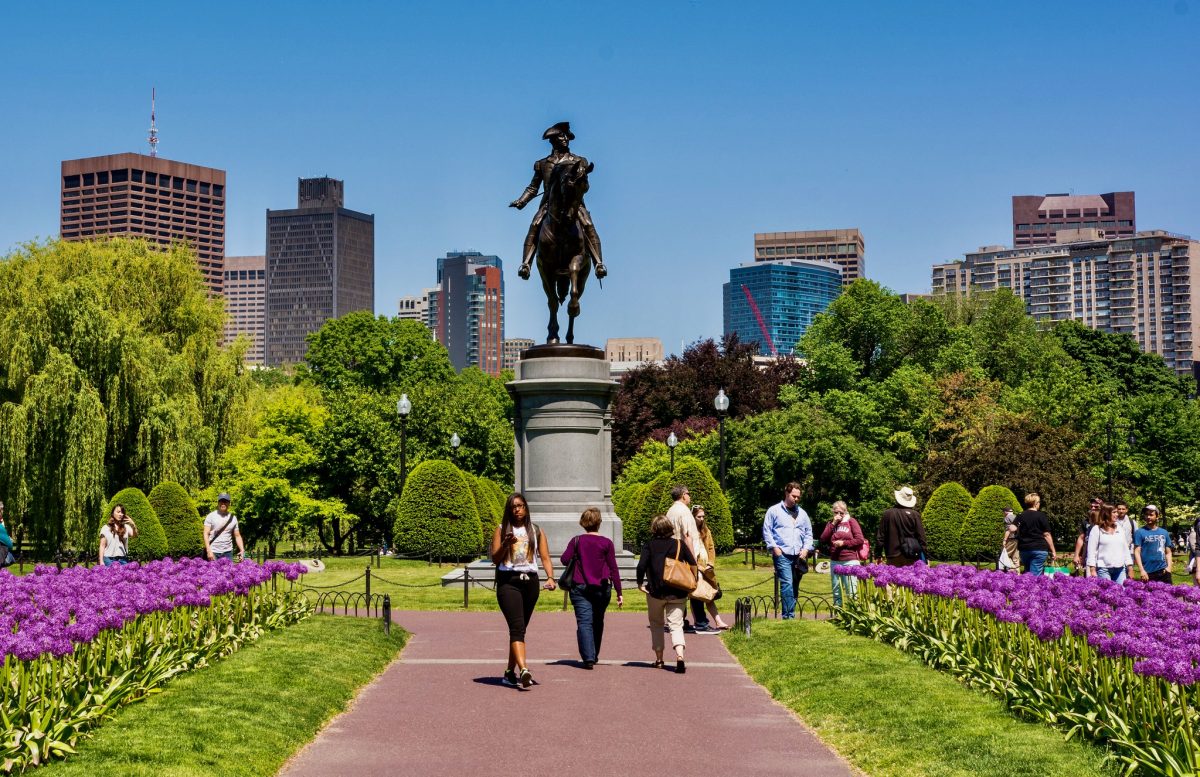Travel Industry Feeling Spry as More of the World Goes Gray

Skift Take
Travel is as guilty as any other industry of sidelining older people in favor of the younger generations.
In one sense this is nothing new. Youngsters have always seduced marketers. What is different, however, is the number of people in their 50s, 60s and 70s who want to travel and more importantly how much money they have at their disposal.
By 2050 16 percent of the global population will be over 65, double what it was in 2012, according to the World Bank. Not only will older people be more prevalent, their attitude to travel is also changing, especially in richer countries. And new research from brokerage firm Bernstein suggests the travel industry will benefit.
“Our analysis of the UK (which offers the best data) finds the over-65s have driven most of the travel spending growth over the last 15 years, especially in the last five (when growth in spend per trip has been +11.5 percent per year),” the Bernstein analysts wrote.
“This is driven by the growth in this demographic, of course, but also the increased spend by the over 65s as this cohort becomes wealthier, healthier and more adventurous. These older travellers tend to take more trips, longer trips, and are increasingly travelling further afield, to long haul destinations.”
Bernstein predicts this could add an extra 1.3 percent to travel spending in the UK (on top of inflation and population growth). The best-case scenario sees travel spending increase 6.7 percent. We're talking about a lot of money.
Bernstein sees Saga, which caters specifically for the over 50s, as well as cruise companies like Carnival and Royal Caribbean as big beneficiaries of increased spending, thanks to the types of holidays they offer.
The UK is not going to be the only country where this change takes place. In fact, it is set to be below average. Between 2017 and 2050 the percentage of people over 65 will grow 15.7 percent in China and 9.2 percent in Germany with the world average at 7.1 percent (the UK is at 6.9 percent with the United States at 6.7 percent). This means that the global trend is likely to be even more pronounced.
An Underserved Market
Yes, there have always been companies specializing in travel for the over 50s but it was restricted to cruise and coach touring in short-haul destinations. Now there’s a lot more variety.
In its Worldwide Trends Report for 2018, UK tour operator Kuoni said it had seen an increase in demand for “epic adventures, worldwide tours and luxury cruises” because of what it called “platinum pensioners” i.e. wealthy retirees.
Not only have these baby boomers benefited from a substantial rise in property prices during their lifetime, in the UK they now have more freedom to spend the money they’ve saved thanks to a relaxation in pension regulation in recent years, which means “wealthier, older consumers, who are still fit and healthy, are spending more on experiences as they continue to live life to the full.”
The change to pensions has been a particular boon for the travel industry. The schemes enjoyed by the over 55s were generous compared with today’s standards and they can now take out the whole amount as a lump sum with no tax due on the first 25 percent.
Debbie Marshall, managing director of over 50s review website Silver Travel Advisor, believes the new wealth enjoyed by pensioners enables them to be a lot more adventurous in their travel choices.
“Anecdotally and statistically we see it happening time and again, people realize they are getting to the early stages of retirement, they have a bucket list or wish list, places they want to see and things they want to do and particularly [they are] becoming much more adventurous, active in their early old age and they want to do it while they still can,” she said.
“So they are prepared to spend on these big ticket items like world cruises the long trips [to] Australia, New Zealand, the Galapagos, Antarctica, they’re really, really far flung holidays and I think certainly a generation ago, retirement was all about hunkering down and doing less, now it’s about doing more with the financial freedom to do so if you have access to a pension that can be cashed in.”
Sadly, there's a flip side to this increase in spending. While the older generation has accumulated wealth and was able to weather the recent economic downturn, it was more of a struggle for everyone else: "younger travellers' holiday spending [is] far more tied to underlying economic conditions (employment levels and wage growth) than for the over-65s," Bernstein analysts said.




